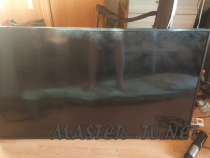- Объявления /
- Радиодетали и электронные компоненты /
- Микросхема MT29F2G08ABAEA TSOP48 NAND Flash 1 шт./лот
Микросхема MT29F2G08ABAEA TSOP48 NAND Flash 1 шт./лот
ПРОДАЖАОписание
Features
• Open NAND Flash Interface (ONFI) 1.0-compliant1
• Single-level cell (SLC) technology
• Organization
– Page size x8: 2112 bytes (2048 + 64 bytes)
– Page size x16: 1056 words (1024 + 32 words)
– Block size: 64 pages (128K + 4K bytes)
– Plane size: 2 planes x 1024 blocks per plane
– Device size: 2Gb: 2048 blocks
• Asynchronous I/O performance
– tRC/tWC: 20ns (3.3V), 25ns (1.8V)
• Array performance
– Read page: 25μs 3
– Program page: 200μs (TYP: 1.8V, 3.3V)3
– Erase block: 700μs (TYP)
• Command set: ONFI NAND Flash Protocol
• Advanced command set
– Program page cache mode4
– Read page cache mode 4
– One-time programmable (OTP) mode
– Two-plane commands 4
– Interleaved die (LUN) operations
– Read unique ID
– Block lock (1.8V only)
– Internal data move
• Operation status byte provides software method for
detecting
– Operation completion
– Pass/fail condition
– Write-protect status
• Ready/Busy# (R/B#) signal provides a hardware
method of detecting operation completion
• WP# signal: Write protect entire device
• First block (block address 00h) is valid when shipped
from factory with ECC. For minimum required
ECC, see Error Management.
• Block 0 requires 1-bit ECC if PROGRAM/ERASE cycles
are less than 1000
• RESET (FFh) required as first command after poweron
• Alternate method of device initialization (Nand_Init)
after power up (contact factory)
• Internal data move operations supported within the
plane from which data is read
• Quality and reliability
– Data retention: 10 years
• Operating voltage range
– VCC: 2.7–3.6V
– VCC: 1.7–1.95V
• Operating temperature:
– Commercial: 0°C to +70°C
– Industrial (IT): –40єC to +85єC
• Package
– 48-pin TSOP type 1, CPL2
– 63-ball VFBGA
Description
Micron NAND Flash devices include an asynchronous data interface for high-performance I/O operations. These devices use a highly multiplexed 8-bit bus (I/Ox) to transfer commands, address, and data. There are five control signals used to implement the asynchronous data interface: CE#, CLE, ALE, WE#, and RE#. Additional signals control
hardware write protection and monitor device status (R/B#). This hardware interface creates a low pin-count device with a standard pinout that remains the same from one density to another, enabling future upgrades to higher densities
with no board redesign. A target is the unit of memory accessed by a chip enable signal. A target contains one or
more NAND Flash die. A NAND Flash die is the minimum unit that can independently execute commands and report status. A NAND Flash die, in the ONFI specification, is referred to as a logical unit (LUN). There is at least one NAND Flash die per chip enable signal. For further details, see Device and Array Organization.
This device has an internal 4-bit ECC that can be enabled using the GET/SET features or by factory (always enabled). See Internal ECC and Spare Area Mapping for ECC for more information.






















































































































































































































































































































































































































































































































Комментарии
Чтобы комментировать — надо зарегистрироваться
Ждем ваши комментарии